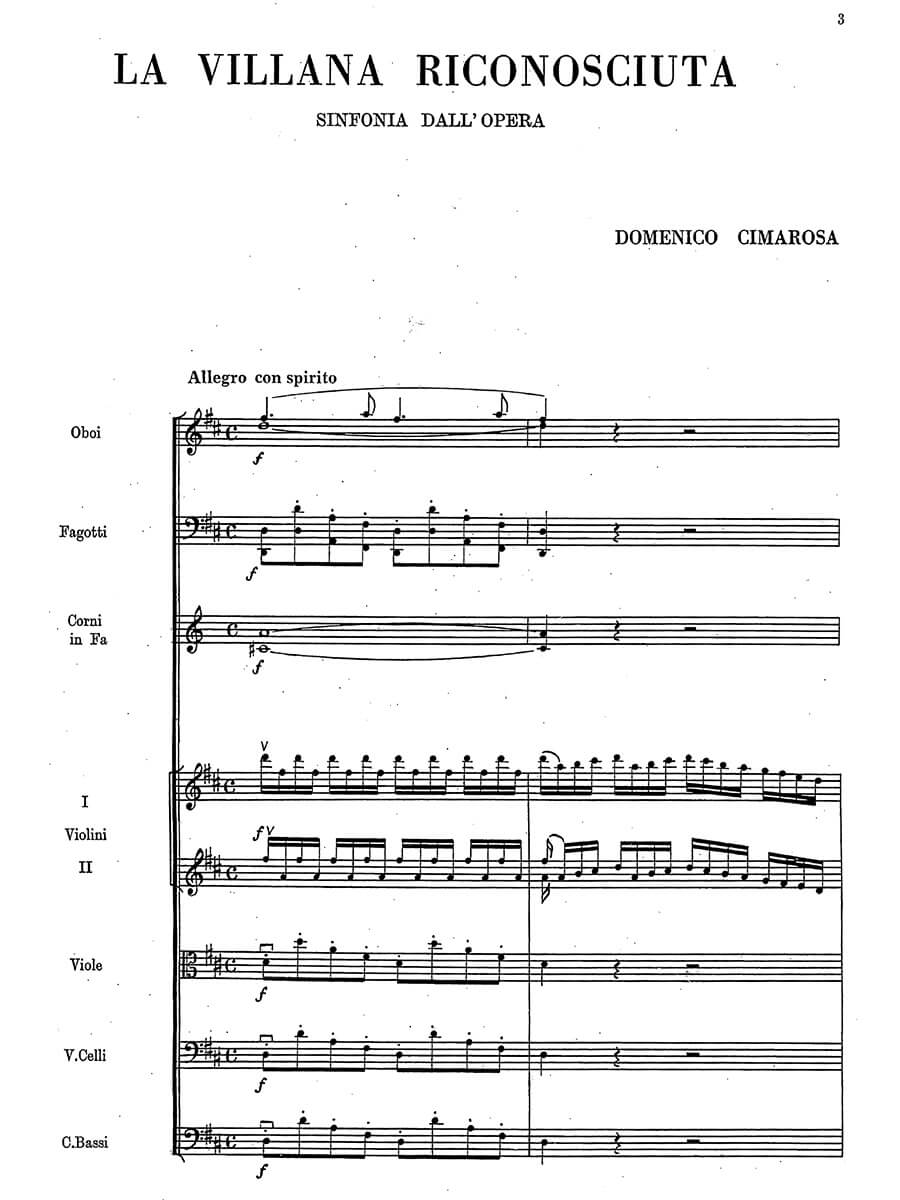La Villana Riconosciuta, overture
Cimarosa, Domenico
17,00 €
Preface
Domenico Cimarosa – La Villana Riconosciuta
(b. Aversa, Kingdom of Naples, 17. December 1749 – d. Venice, 11. January 1801)
Overture
Preface
Domenico Cimarosa was born into a home of humble means in Aversa, Italy. Early in his life, his family moved to Naples where his formative education was entrusted to the members of a local monastic order after his father’s untimely death. Cimarosa was held in high regard by both the public and his peers, not only for his compositional prowess, but also for his manners and for his honesty when conducting business. His organ skills earned him admittance to the Conservatorio di Musica Santa Maria di Loreto around age ten or eleven. There he studied counterpoint, voice, violin, and harpsichord. His opera career began here when he sang the titular role in a two-part intermezzo, Antonio Sacchini’s Fra Donato (1756). His career composing operas began with a commission for the Carnival season at the Teatro dei Fiorentini. His operas soon gained notoriety in Italy and across Europe. By his 40s, Cimarosa enjoyed tremendous success as a composer and as choir master in the court of Leopold II. Not long before the premiere of La Villana Riconosciuta, he returned from the court of Leopold II to Naples, where he was met with a resounding welcome home.. Later in life, Cimarosa had a disagreement with a monarch whose regime had recently overtaken Naples, and he spent four months in prison. Upon his release, Cimarosa was exiled from the Kingdom of Naples. Due to his poor health, he settled in Venice. He received a commission there for a new opera but was rendered bedridden by cancer after having only completed two acts. Cimarosa died shortly thereafter.
La Villana Riconosciuta, translated as “The Country Girl Revealed,” was premiered as the first opera of the 1793 season at Teatro del Real Fondo di separazione. It was a comic opera in three acts and set a libretto written by Giuseppe Palomba.
The work received mixed reviews, the worst coming after the performance at the Haymarket Theatre in London. These critics decried the opera, focusing on the confusing libretto, saying “the dramatic part is indifferent, but this is generally the case with comic operas.” Additionally, they described Cimarosa’s composition skills as “tolerable,” but lacking originality. The opera was better received in Barcelona, Berlin, Madrid, and Rome to name a few. …
Read full preface > HERE
Score Data
| Edition | Repertoire Explorer |
|---|---|
| Genre | Orchestra |
| Printing | Reprint |
| Pages | 32 |
